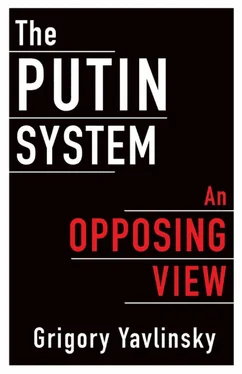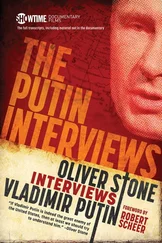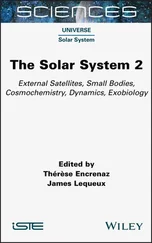Of course, in this situation, parliamentary elections are becoming entirely devoid of any practical sense. In the preceding period, the ruling circle viewed such elections as a super-representative opinion poll, used to legitimize the role and the status of the country’s unquestionable leader. Now, given the lack of any distinguishable differences among the parties (apart from their leaders’ names), holding elections does not make sense even as an opinion poll. They either become a farce, a show closely following a predetermined script, or they get abolished altogether. Time will tell which of these two paths will be selected by Russia’s authorities; most likely it will be decided ad hoc, depending on the context. Yet, however it ends up, under the conditions of today’s Russia, parliamentary elections, being an alien element in a totalitarian or semitotalitarian system, appear to be doomed to extinction.
A second trend that has emerged since 2014 is the consolidation of the ruling circle’s economic interests, with drastic curbs on economic lobbying. In the first decade of the new century, there were several distinguishable subgroups within Russia’s ruling class, each oriented toward its own sector and industry focus, from the resource industries and large-scale infrastructure projects to manufacturing and even the technologically advanced clusters of the economy. There was also a separate group of the elite that was betting on the development of modern finance (or, in their own words, “the transformation of Moscow into an international financial center”). On top of that, there were subgroups that represented diverse regional interests and priorities, such as those who emphasized the need for an accelerated development of Russia’s Far East, those who lobbied for the utilization of Arctic resources, and so on.
These groups worked to produce some theoretical justification for their activities, and visions of economic and social development that were distinguishable from one another. While some of them stressed the need to concentrate financial resources and investment activities in the government’s hands and to implement the megaprojects that had been prepared for either existing or projected government-owned corporations, other groups emphasized the need to reduce the tax burden on businesses and to incentivize primarily small and medium-size entrepreneurship. There was a blueprint for developing Russia into an “energy superpower”; this was countered by a plan for “modernization-oriented growth” that would rely upon the high-tech clusters of the economy. These various groups and currents also had different views about the role of foreign capital in Russia.
The arguments and debates between the proponents and the opponents of individual projects and economic development plans filled the pages and the airwaves of mass media. They were also reflected in behind-the-scenes clashes among various expert groups who were fighting for a benevolent attitude from the Kremlin and for access to additional sources of influence and money. Eventually, these currents of lobbying and economic thought even acquired certain institutionalized forms, such as various councils and associations that had the ability to convey and defend the collective interests of their specific groups.
Granted, this was not quite the same as political competition in its traditional sense; yet, undoubtedly, the rivalry among lobbyists and interest groups, each vying for a larger share of the financial and administrative pie, also involved some elements of a political contest. Even given the tight restrictions under which they operated, these groups nevertheless were increasing the flexibility of the system and providing it with a feedback mechanism, which to some extent enabled it to adjust in response to the changing challenges.
Nowadays, the increasing rigidity of Russia’s political framework has affected these aspects as well. Under budgetary constraints, reinforced by the drastic decline in economic efficiency and the rising costs incurred by self-isolation, the wiggle room that generates competition among economic interests has narrowed. Putin’s “new course” imparts a peremptory style to the decisions it makes about the industrial and geographic priorities of its economic policy, thus making lobbying efforts largely meaningless. Meanwhile, the new ideological “braces,” as they are called by the media, have drastically diminished the value and the worth of any intellectual support for competing economic interests. This is exacerbated by the trend toward an even greater concentration of decision-making power in the hands of one individual—Vladimir Putin—who, on top of that, is increasingly impatient with those who disagree with him or raise any objections to his viewpoints and is increasingly judgmental in his statements about individuals and groups who express their discontent with developments in the country. As a result, even this modicum of competition is viewed as a threat and becomes a target for coercive pressure.
A final trend is the rejection of the horizontal ties between the elements of this political system and the outside world. The policy of self-isolation implies that any international contacts with individual agencies that do not directly involve the people at the top of the pyramid of power are becoming not just a nuisance but even a potentially dangerous activity. This affects not only nongovernmental organizations and semigovernmental entities (including academic, analytical, cultural, educational, and charitable institutions) but also official agencies of the government, such as regional governments, territorial associations, administrations of local and other units subject to special economic regulations, and the like.
As a result, the overall amount of international contact inevitably begins to shrink, and this also indirectly constrains the economic activities of foreign players or of business entities with foreign participation on Russia’s territory. The policy of attracting foreign capital is being replaced with indifference or even hostility to it on the part of the authorities. While Russia is not yet being shut off from the outside world, it is a significant step in this direction and may be fraught with grave implications for the long haul. (At present, this development is still at a very early stage, but some of its obvious indicators are already discoverable and can be evaluated.)
In this regard, the government’s surveillance of its citizens’ foreign contacts will not focus only on civic activists and roaming oppositionists. It also will target individuals from the ranks of the seemingly docile bureaucracy who have opportunities for unrestrained contacts with the outside world and are able to acquire some kind of assets abroad. Just a few years ago, the bureaucracy appeared to be permanently entitled to such “unpatriotic” behavior; nowadays, this entitlement is being questioned by the people at the top of government hierarchy. Thus, the elite have serious reasons to believe that the new policies aimed at their cosmopolitan members are being introduced in earnest and for the long haul. It is easy for the Kremlin to pivot the campaign of “de-offshorization,” or repatriation of Russians’ assets from the tax havens, and of the “nationalization of the elite” precisely toward cutting off any independent contacts of government officials with the outside world. And there already are indications that a full-fledged movement in this direction, greatly facilitated by US and UK sanctions, is already under way.
FROM PERIPHERAL TO PAROCHIAL: THE TRAJECTORY OF AN AUTHORITARIAN REGIME
In the previous chapters, I sought to show that authoritarianism as a political system is essentially an unavoidable or nearly unavoidable result of the domination of a peripheral-type capitalism in the country. The reason for this is that, being peripheral, this type of capitalism relies upon a narrow range of rather unsophisticated resources and, therefore, by its very nature, does not generate sufficient prerequisites for a full-fledged functioning of the institutions of political competition. The types of resources that it relies upon may include the raw materials that are of interest to the countries of the core of global capitalism, or it may be an abundant, cheap workforce or the opportunity to minimize material and transportation costs.
Читать дальше












